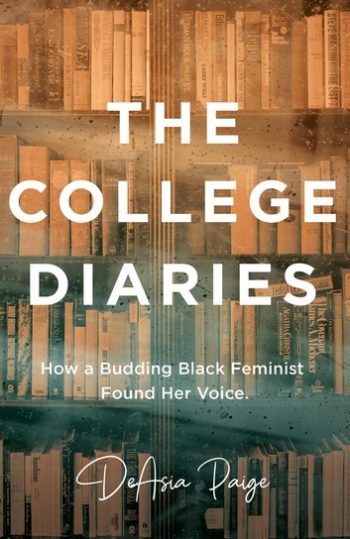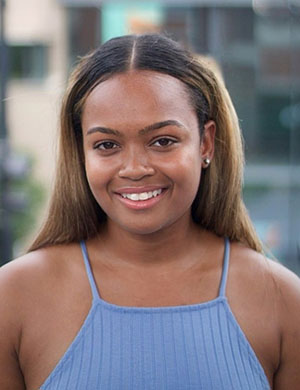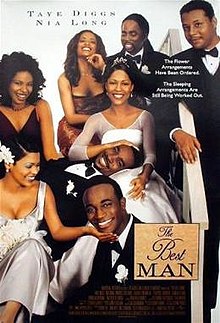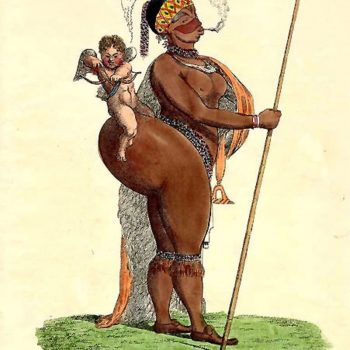This content is being reviewed in light of recent changes to federal guidance.
An interview with DeAsia Paige, author of The College Diaries Pt. 1
Categories: HBW, Guest Blogger
The College Diaries: How a Budding Black Feminist Found Her Voice, by HBW alum DeAsia Paige was released in 2020. When Shipley-Gates published the review, during Women’s History Month, she and Paige began an important conversation. The Project on the History of Black Writing hopes that sharing that conversation can help shed light on the culture that too many young women encounter when they enter college.
In Part I of the interview Paige discusses the journey that led to the creation of her first book and the inspiration behind it. More than a background story, Paige is breaking the silence for her generation. The College Diaries offers us a startling example of why “much work needs to be done to help Black women, especially in college, get the help that they need,” according to Shipley-Gates, “whether it’s social support, trying to meet friends, or important networks.”
*This interview has been edited for length and clarity *

The College Diaries (2020)
Shipley-Gates: I just want to say that book is a damn good book, damn good book. I’ve been out of undergraduate school since 2006. It’s very reassuring to know that at least two of us in this world have experienced these things in college. And even though I went to an historically Black college [HBCU], you had me right there with every word: it was very refreshingly raw and transparent. I would love for you to tell your readers a little bit about yourself, what would you like them to know?

Paige: Aw, I’m glad. To start off, I’m naturally introverted, so I would say I’m inherently a better writer than I am speaker. I don’t know if that shows in the book at all, but I use writing as my therapeutic relief when I’m going through things. I wanted to show that in the book because I was talking about some very real experiences. I wanted to write in a way that you could tell what I was going through, sympathize with me in a way, and see how that relates to your own life. That’s the first thing I want readers to know about me, that I wouldn’t share this kind of information with people by just having a conversation with them. I would write it down and open it up to the world; it’s just so crazy. Even as an introvert, writing provides that space for me to feel confident in sharing my experiences.
Shipley-Gates: That’s good to know. I don’t know if I got that you were an introvert, but I knew that social support was very important to you. I wouldn’t expect you to be a public speaker and announce all of this, but I can definitely see that that writing is your outlet. We need more of that especially among Black women: to be able to come forward and share our experiences. How did you know that it was time to share your story, via book? Walk me through the journey toward that decision?
Paige: Since my first year, I’d been writing some of what’s in the book while those things were happening. Once it got to my senior year, I was like, I have this record of my experiences in college, I might as well just put it together into a book. That’s what I did. It wasn’t really anything that I’ve been thoroughly pursuing. It wasn’t planned, like I want to write this and I’m gonna do this at this time. It came naturally because I had been writing for the four years, and it made sense to do that.
Shipley-Gates: It’s like a journal – where you were able to document what was happening in real time. I was wondering if that was the case because the book is vivid and descriptive with so many details. I was curious if you were writing retrospectively or whether everything was happening as you went along. What made you decide ‘‘this is it”? “I’m about to tell all my business, KU is gonna hear about what happened while I was with them.” What made you feel like, “I don’t care, I’m doing it”?
Paige: It’s funny that you say that because I still feel that way a little bit. People say that they are reading my book, I’m like, “Oh shit, they’re about to find out things about me that I would not naturally just tell you.” I still feel weird about it, because I’m thinking, “Well damn, I just put all my personal business our there for everybody to see.”
At the same time, I think that there’s a sort of power in that, especially for Black women to be able to see themselves. By going through those things, I often felt like I was alone, but I think in retrospect, I learned that you’re never alone in those situations, although you might feel that way. With that in mind, I knew that this was something that people needed to find. That I wasn’t alone in those situations that happened to me, especially when talking about Black women.
Shipley-Gates: Well good. I can only imagine professors I’m assuming you’re talking about or fellow classmates and how they would react.

Paige: Yeah, even my family members. One of my bosses mentioned that he bought it, and I was thinking: oh, let me just send you an annotated guide. I didn’t actually say that, but I thought that in my head. I felt like Harper from the movie The Best Man.
Shipley-Gates: You’re still selling, you’re still going through that, so what’s been the overall response to your book? Knowing that certain people may be called out or they’re learning these pieces about you that they had no idea about, what’s been the reaction?
Paige: For the most part, it’s been surprisingly positive. Even my great-grandma, who I would say, is very conservative. I was hesitant to even tell her about the book because I knew that she might disagree with some things I mentioned, like sex positivity. I know she has a different frame of mind, and I didn’t know how she would take it, but she liked it. I know it’s short, but everybody seems to be reading the book in one or two days, so it’s been positive so far. It’s a surprise because I really thought that I was gonna get heavily scrutinized. That really wasn’t the case at all. It’s definitely been positive, for sure.
Shipley-Gates: That’s good to hear. It’s interesting that you mentioned your great-grandmother, because I know a lot of what you’re mentioning is the heavy influence of church and religion and how you’re grappling with that relationship. I can only imagine the thoughts of these people who raised you in that faith. That they are having positive reactions is a good sign.
Let me also say that this book is very relatable and accessible. That people read it in a day or two. I read it in a couple hours because I could totally relate—I can only imagine that someone younger or someone who isn’t in academia can definitely go through it without a problem. This is another important piece to the book’s importance.
Paige: Right! That’s another thing I was concerned about. Like a memoir is typically a short book, but I didn’t think people were gonna read it in like, one day.
Shipley-Gates: Yeah, because it is so accessible, it’s a book that you don’t want to put down.
Let me return to that moment when you decided to write the book and put all your entries together. What was the one idea that you hoped your readers would take away when reading your book?
Paige: One thing is the idea that Black women can be many things. I think sometimes people like to place us in this box and say “oh, if you’re a sex positive and you share thirst traps of yourself on Instagram, then there’s no way that girl can be smart and intelligent, or just talk about feminism and have all these ideas about love and relationships.” Like, no, those two things can coexist. I think that’s something that I’ve definitely struggled with throughout my life. I grew up in a church, where you are taught just be this one way. There’s so much freedom in knowing that you can be more than just one way, and more than what society has already predetermined for you. I think for Black women, that’s essentially a great lesson to learn because so many times we’re just so compartmentalized by men and by those outside of our community as well. I think that’s one thing I would hope readers take away from it, regardless if you’re a Black woman or not.

A caricature of Sarah Baartman, a Black woman who was hypersexualized
in European art and used to reinforce negative sexual stereotypes.
Shipley-Gates: That’s perfect, because that’s definitely what I personally got out of that. I hope that’s what the readers got out of it as well. It’s very rare to get to talk to the actual author and say, “this is what I got out of this; is this what you wanted?” You definitely made that clear. I loved how you were also doing some fact checking, some clarification, providing some education there, which I appreciated. Defining the history of hypersexuality of Black women like Sara Baartman and happiness; defining virginity and explaining it as a social construct. You walk us through the Black Superwoman trope and do a great job of that. That’s part of the accessibility of being able to say, “in case you didn’t know, these are some of the hats that they’re making us wear, these are some of the things they’re predetermining for us, and so I’m here to let you know that we don’t have to do that.” I really appreciate that as well. Kudos, it’s really hard to try to take information, especially when we’re in academia, and explain it in accessible terms. When you were talking about intersectionality, you were always trying to find a way to explain it to the general reader – and you definitely succeeded.
Paige: Thank you so much. I was hoping everything was clear, because I knew that there was going to be some things that would be like, “well, what is she talking about?” But I was hoping that people would understand what I was saying.
Shipley-Gates: And the virginity piece too, when I realized I was like – oh is she going there? That’s the one conversation that the church likes to push onto Black women, especially when they’re trying to play respectability politics and forcing us to be virgins. We can try to change those negative sexual narratives about us. You’re letting us know that that’s still something that’s keeping us from living in our true skin. This is what I loved about it.
Have any of your KU professors read your book yet?
Paige: See, this is where my introverted side comes out, because in my opinion, I have not marketed the book as well as I should have. I don’t think professors know about it. I’ve shared it on social media, but I haven’t done that much direct outreach, which I need to do. I’ve heard from KU students who have read it and they liked it so far, but in terms of professors in those higher up positions, I haven’t reached out to them.
Shipley-Gates: Well Dr. Graham [Ku English] knows about it and I don’t know if you ever worked with Dr. Ayesha Hardison [Ku English/Women, Gender and Sexuality], but she knows about it, too. She put me on to Dr. Graham to read the book and do the book review, so I’m very grateful to both of them because I would have never known about it. It was funny because I was trying to find a book for the Free Black Women’s Library and I’m like, oh, this will be great. You’re already signed up to do it!
Paige: Yes. Megan Williams [Assistant Director Emily Taylor Center for Women & Gender Equity], she knows about it, so that’s somebody else but yes, she reached out to me to be a part of that. I don’t know why I’m selling myself short.
Shipley-Gates: Thinking retrospectively, or maybe you even had notes about this throughout your college career, how could KU have helped you during these challenging times in your college life? Did you ever have those thoughts about what you think was missing or what you loved about KU’s assistance, if they did? What were you thinking at that time?
Paige: I do wish there was more. I know KU has G.E.M.S (Gifted Empowered Motivated Sisters), but that was a great group for me that I joined my junior year. I just wish there were more Black woman-centric groups on campus because G.E.M.S didn’t come about until my later years. I was about to walk out the door, but I feel with more outreach maybe my experience would have been a little bit less lonely. KU was not that diverse to begin with, but I think having those systems of support would have been great once I got there. When I first got to KU, it was just so white to me, I didn’t even want to go there and go to that school initially, because of how white it was. I’m used to being around Black people and that’s who I’ve been around my whole life. It was kind of a culture shock, but not really. I just really wish they had those systems support already in place once I got there.
Shipley-Gates: That’s good to know. That’s a perfect example of how your work translates into something bigger, like making possible changes that are needed, because again, like you said, you’re not the only one, but it felt that way at the time.
Paige: Yeah, I’m just hoping that future students have that support that I didn’t get.
Shipley-Gates: I think that’s a good point: especially at predominantly white institutions, they need to do a better job during that first year. As you said, it’s a not culture shock because you do know that’s how the real world operates, and yet it’s still different from what you’re used to. They expect you to survive like that for four years, if not more if you choose to stay and get advanced degrees.
Since you’re an HBW alum, what influence did HBW have on your book or in your life in general so far?
Paige: HBW was one of those support systems in a way that G.E.M.S. was for me. Obviously, HBW was in existence prior to my coming to KU, but I didn’t really get involved until my junior year, same with G.E.M.S. I felt like I had my own family there and I still miss the atmosphere, especially with my new job where it’s very white. HBW definitely helped with my research skills which I was able to use when writing my book in researching things like feminism and virginity and various social constructs. Working with HBW taught me that there’s always going to be research in whatever you do; it’s crucial to my work today, even as a journalist. I do that, like 24/7 now. I think those two things – a family support system and knowing that research is crucial to whatever I do – definitely helped me with this book and really everything in my life in general.